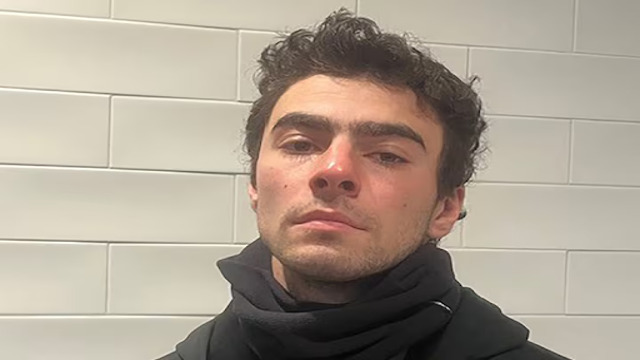
Luigi Mangione, 26, the suspect in the New York City murder of UnitedHealth executive Brian Thompson, was found by police at a McDonald's in Altoona, Pennsylvania, on December 9, 2024. Reuters
Luigi Mangione, already facing state murder charges for the fatal shooting of UnitedHealthcare executive Brian Thompson, is now expected to face federal charges, according to sources. The federal case could lead to the death penalty, even though capital punishment has been abolished in New York for years.
The exact nature of the federal charges has not been disclosed, but they will be in addition to the 11 counts Mangione is already facing in New York State. These charges include first-degree murder and murder classified as an act of terrorism. If convicted on all state counts, Mangione, 26, could face life imprisonment without the possibility of parole.
Mangione was arrested on December 9, five days after the killing, which occurred outside a Manhattan hotel. Thompson had been attending a corporate conference when he was shot. The incident has drawn widespread attention, highlighting the frustration many Americans feel about navigating and affording healthcare services.
While authorities have not confirmed a motive, those who knew Mangione have shared that he struggled with chronic back pain, which severely impacted his quality of life. It remains unclear if this played a role in the tragic events. Social media posts and interviews with friends reveal that Mangione frequently voiced his struggles with his condition, though his frustrations did not suggest violent intent.
The addition of federal charges to Mangione's case opens the possibility of the death penalty, a measure that has been sparingly used at the federal level. This development underscores the severity with which prosecutors are treating the case. The U.S. Department of Justice has yet to issue a statement regarding the charges or the timeline for the federal proceedings.
Thompson’s death has left a deep impact on his family, colleagues, and a nation grappling with issues related to healthcare accessibility and affordability. His leadership at UnitedHealthcare had made him a recognizable figure in the healthcare sector. His tragic death has sparked discussions about the pressures and frustrations within the system, as well as how individuals cope with chronic pain and illness.
Mangione’s background adds an unexpected layer to the case. Ivy League-educated and described by acquaintances as intelligent and reserved, his actions have shocked many who knew him. The contrast between his academic achievements and the nature of the charges he faces has only fueled public curiosity and speculation.
As the case unfolds, many are awaiting clarity on the federal charges and whether prosecutors will seek the death penalty. This case highlights the complexities of mental health, chronic pain, and societal frustrations that often remain unaddressed until they lead to tragic outcomes.















